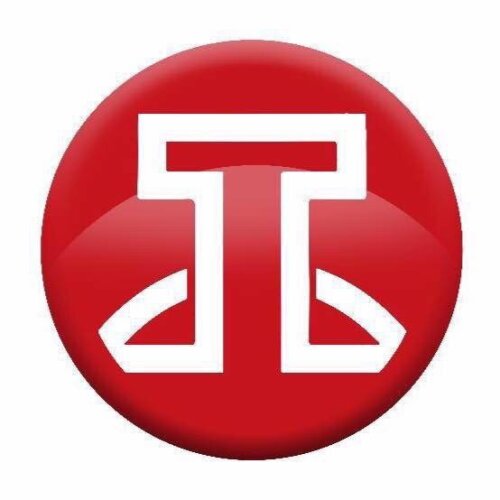Best Estate Planning Lawyers in Haiphong
Share your needs with us, get contacted by law firms.
Free. Takes 2 min.
List of the best lawyers in Haiphong, Vietnam
About Estate Planning Law in Haiphong, Vietnam
Estate planning in Haiphong, Vietnam, is a legal process where individuals arrange the management and disposal of their estate during their life and after death. The process includes the bequest of assets to heirs and the settlement of estate taxes. Vietnamese law governs estate planning through various statutes, including the Civil Code, the Law on Inheritance, and specific regulations related to real estate and personal property. The aim is to ensure the distribution of the individual's assets is carried out according to their wishes while complying with local laws.
Why You May Need a Lawyer
There are several situations where legal help is essential in estate planning. If you own significant assets, have a blended family, want to establish a living trust, or have specific desires regarding the care of minor children, a lawyer can provide valuable assistance. Additionally, if you have assets in multiple countries, a business, or you anticipate disputes within your family over your estate, an attorney’s guidance can help navigate the complexities of Vietnamese law to protect your estate and fulfill your final wishes.
Local Laws Overview
When it comes to estate planning in Haiphong, Vietnam, several key aspects of local laws must be considered:
- The Civil Code outlines the legal framework for inheritance, defining legitimate heirs and the order of succession.
- Property ownership laws determine what constitutes separate versus communal property, impacting how assets are divided.
- Tax regulations may affect the estate, especially regarding transfers of property and the payment of any applicable taxes.
- Probate laws cover how an estate should be handled after the death of the owner, including the execution of a will, if present.
Understanding these areas is critical to ensure estate plans are legally sound and enforceable.
Frequently Asked Questions
1. What is considered an estate in Vietnam?
An estate includes all personal and real property owned by an individual at the time of their death, such as land, houses, cash, stocks, and personal items.
2. How is inheritance taxed in Vietnam?
Vietnam does not currently impose an inheritance tax. However, it's important to consult with an estate planning lawyer for the most recent updates on tax regulations as they can change.
3. Who can inherit in the absence of a will?
If there is no will, Vietnam’s Law on Inheritance defines the order of heirs, generally favoring spouses, children, and parents first.
4. Can I leave my assets to anyone I choose?
While you can generally choose your heirs, Vietnamese law protects the rights of certain family members by entitling them to a reserved portion of the estate.
5. What is the process for creating a will in Haiphong?
Creating a will in Haiphong requires a clear statement of intent regarding your assets, witnesses to the signing of the will, and notarization to ensure its validity.
6. Can a will be contested?
Yes, wills can be contested on various grounds such as duress, fraud, or the testator’s incapacity at the time the will was made.
7. How does joint property ownership affect estate planning?
Joint property is typically considered communal and will pass to the surviving owner, affecting how other assets are distributed.
8. Are digital assets included in estate planning?
Digital assets should be included in estate planning, although the legal framework surrounding them is still evolving.
9. Do I need to translate my will if it's not in Vietnamese?
Yes, a translation may be necessary for the local authorities to recognize your will during the probate process.
10. Can an executor be appointed in Vietnam?
An executor can be appointed in your will to manage and distribute your estate according to your wishes, subject to local laws.
Additional Resources
For assistance with estate planning in Haiphong, you can reach out to local law firms specialized in estate planning and probate matters. The Bar Association of Haiphong is also a good resource for finding qualified attorneys. Furthermore, governmental bodies such as the Department of Civil Judgment Enforcement and local notaries can provide guidance and necessary services regarding the legal requirements for wills and estate administration.
Next Steps
If you need legal assistance in estate planning, the first step is to compile all relevant documentation about your assets and determine your goals for your estate. Next, consult with a qualified estate planning lawyer who understands the nuances of local laws in Haiphong. They will guide you through the process of creating legal documents, including wills and trusts, and can also aid in legally securing your estate’s future.
Lawzana helps you find the best lawyers and law firms in Haiphong through a curated and pre-screened list of qualified legal professionals. Our platform offers rankings and detailed profiles of attorneys and law firms, allowing you to compare based on practice areas, including Estate Planning, experience, and client feedback.
Each profile includes a description of the firm's areas of practice, client reviews, team members and partners, year of establishment, spoken languages, office locations, contact information, social media presence, and any published articles or resources. Most firms on our platform speak English and are experienced in both local and international legal matters.
Get a quote from top-rated law firms in Haiphong, Vietnam — quickly, securely, and without unnecessary hassle.
Disclaimer:
The information provided on this page is for general informational purposes only and does not constitute legal advice. While we strive to ensure the accuracy and relevance of the content, legal information may change over time, and interpretations of the law can vary. You should always consult with a qualified legal professional for advice specific to your situation.
We disclaim all liability for actions taken or not taken based on the content of this page. If you believe any information is incorrect or outdated, please contact us, and we will review and update it where appropriate.









